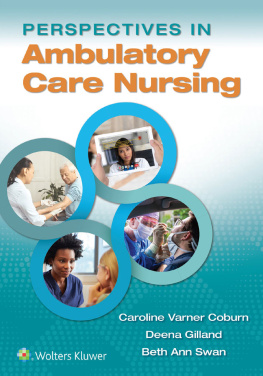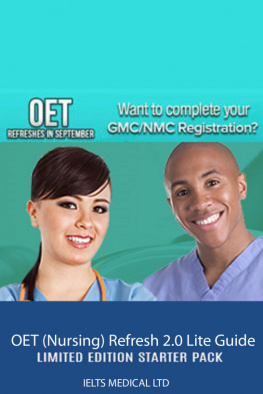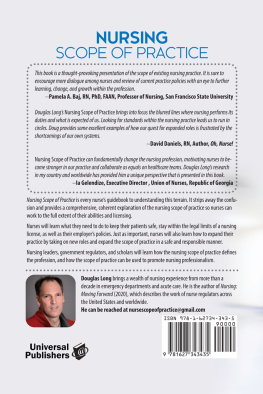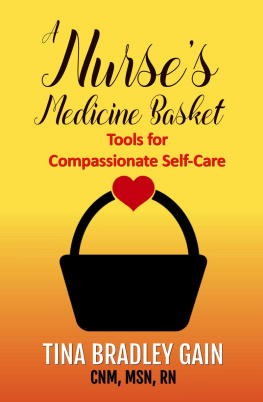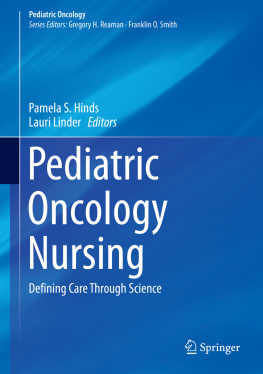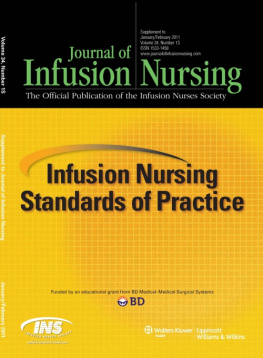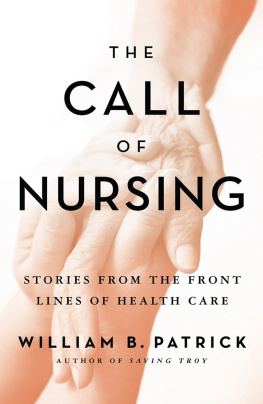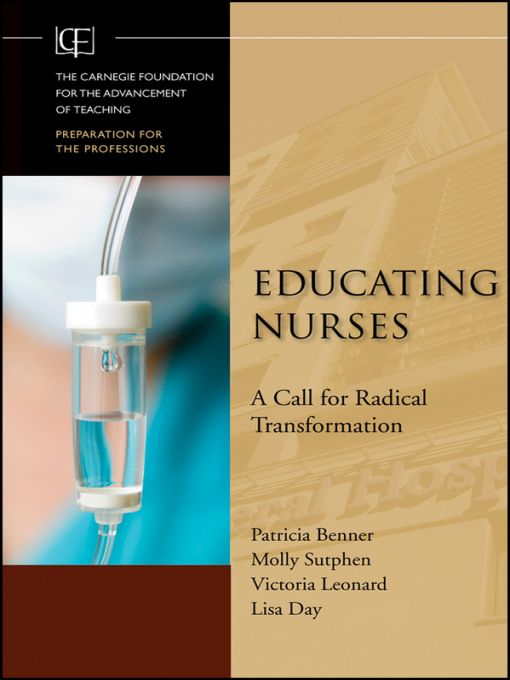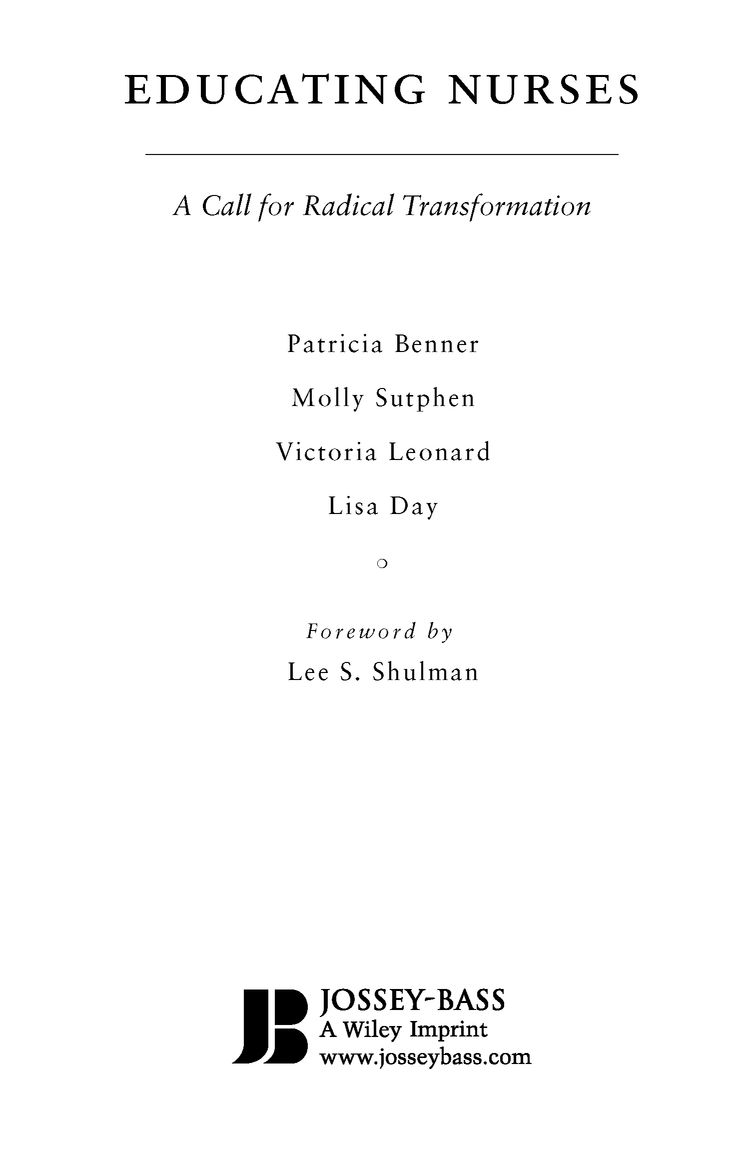Table of Contents
The Jossey-Bass
Higher and Adult Education Series
THE PREPARATION FOR THE PROFESSIONS SERIES
THE PREPARATION for the Professions Series reports the results of the Carnegie Foundation for the Advancement of Teachings Preparation for the Professions Program, a comparative study of professional education in medicine, nursing, law, engineering, and preparation of the clergy.
FOREWORD
SOME WORDS ARE regularly misspelled. Among them is the word foreword , often spelled forward. The pages that follow are not intended to look forward beyond the narrative, argument, findings, and recommendations of this volume on the preparation of nurses. They are intended as a set of reflections that come before the word, as antecedent to the texts that constitute the heart of this book. Forewords are appetizers rather than main courses. Indeed, they are not even that substantial; perhaps they can be compared to the bite-size amuse-bouche that chefs present before a meal as a small conceit to remind the patrons that theres a serious cook in the kitchen. Its intent is to amuse or tickle the tongue but also as a subtle communication, a wink from the kitchen. Shall we think of the foreword as an amuse-pensee or even as an amuse-esprit?
Ironically, the foreword is typically the last piece of text composed for a book and nearly always by someone who is not among the authors. Although it is the first word to be read, it is the last to be written. So it is on this occasion. Indeed, I prepare this Foreword looking back not only on the Carnegie studies of nursing education, but on the full series of Carnegies program on preparation for the professions that took place over more than a decade. Law and engineering, the rabbinate, priesthood and ministry, medicine and nursing, school teaching and university professing, all were objects of inquiry and deliberation, of data gathering and analysis, of investigations and convenings, within and beyond the Carnegie Foundations hillside home.
From my vantage point in the kitchen, I take this occasion to reflect on our studies of nursing education through the lens of all the other studies we conducted during the past decade. What is particularly striking is the extent to which nursing is a hybrid, a profession whose distinctive features mirror many of the central attributes of other professions while also creating a singular identity of its own. Indeed, when I look at the work of nurses, I see reflections of each of the other professions we have studied.
I will never forget the response we received from a group of nurses in North Carolina when we asked, What is a nurse? Their response: As a nurse, I am the patients last line of defense. No other conception of the nurses role prevailed in our interviews and observations as much as the role of the nurse as patient advocate, that last line of defense against the impersonal nature of the health care system. Repeatedly we heard nurses, nursing students, and nursing faculty refer to patient advocate as the central role of the nurse, the heart of nursing identity. As we came to appreciate in our studies of legal education, advocacy is no simple concept. It is more than defending the rights of the client; there are times when clients must face their responsibilities and obligations, not merely defend their rights. What are the limits of zealous advocacy? The nurse is also a member of the health care team and shares responsibility for maintaining the quality of health care for the larger community.
As an educator, in particular as an educator of teachers, I was equally struck by the attention to the role of nurse as teacher. The work of a nurse is not complete, we were told, when a disease has been healed but when a patient has been prepared to return to a life that is self-managed and independent. For this nurses regularly are expected to teach: to explain to patients how they must care for themselves and why, what new habits of eating and exercising, self-examination and self-regulation they need to develop in order to live healthy productive lives. Who teaches? Nurses teach.
One need only spend a few hours with nurses on a hospital floor or in a cancer treatment room, in an individual office or even during a home visit, before being struck by the varieties of technology with which the nurse must competently cope. Some technologies are as exotic as the now-typical arrays of sensing devices in an ICU or the daunting devices needed for dialysis. Others appear as pedestrian as a hypodermic syringe or a blood pressure cuff. And computers are ubiquitous for record keeping, communications, and the monitoring of drugs. All these now fall within the nurses responsibilities, and he or she is expected to understand what and how to perform in those circumstances. There is an element of engineering and technology in that role, as much Star Trek as ER.
The nurse ministers to patients; he or she offers care and consolation, encouragement and understanding. Much like clergy, we expect nurses to understand how to respond to pain and anxiety, to nurture patients in the face of the terror of the unknown, and to offer hope when there appears to be little available. At times, nurses act as rabbis or priests, comforting family members and caring for the ill. There is a recurring element of spirituality in that caring, even aspects of faith and dedication.
Thus when I think about the preparation of nurses, I see key elements of preparing lawyers and teachers, engineers and ministers, physicians and psychotherapists, social workers and institutional managers. The work is physically grueling and intellectually taxing. It is both routine and filled with the unexpected and the surprising. Nursing education is preparation for remarkably hard work.
This complexity and richness characteristic of the nursing profession is paralleled by the complexity of its contexts of practice. In most other professions, the practitioners maintain a certain modicum of control over the pace and density of the services they render. They normally can limit their attention to a single patient, client, case, or design at a time. But in nursing, much like teaching, many clients are present at the same time, often all needing attention and care. Some form of batch processing may be possible in teaching, as when a teacher instructs a large or a small group. But nursing typically requires one-on-one attention and treatment. Thus, some form of triage is needed on a continuing basis.
Nursing is indeed a hybrid profession, an interdisciplinary and interprofessional nexus of roles and obligations. At its core, however, remain the expectations for caring and advocacy, for ministering to the needs of those who are ill. Hybrids are often particularly robust because they combine the strengths of several species into one. But they may also be particularly vulnerable.
The historian Susan Reverby has made the poignant observation that nurses are obliged to care in a society that does not value caring. Not only are nurses offered little respect and only moderate financial compensation, they are also licensed to practice with less formal education than any of the other professions. While medicine, law, and the clergy generally expect post-baccalaureate preparation, and teaching and engineering require at least a bachelors degree and often more, nurses can currently practice with only a two-year associates degree. It is mind-boggling that this profession, this hybrid of advocacy and medicine, engineering and ministry, teaching and caring, can be practiced with less formal preparation than any other academic profession. It is a challenge that the authors of this book address directly. It will be a significant aspect of the issues and controversies that the book provokes.


